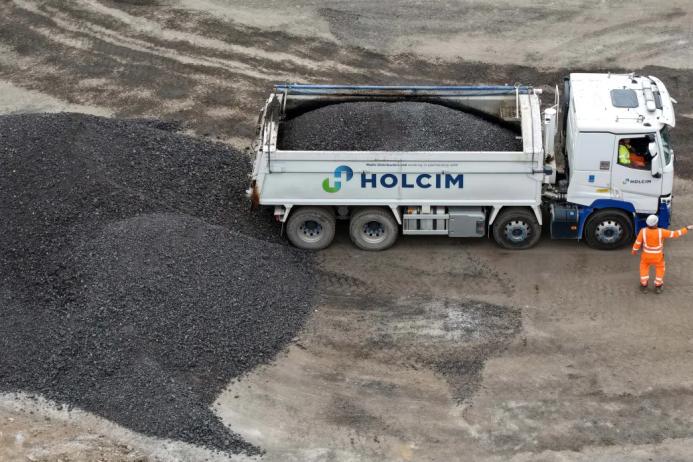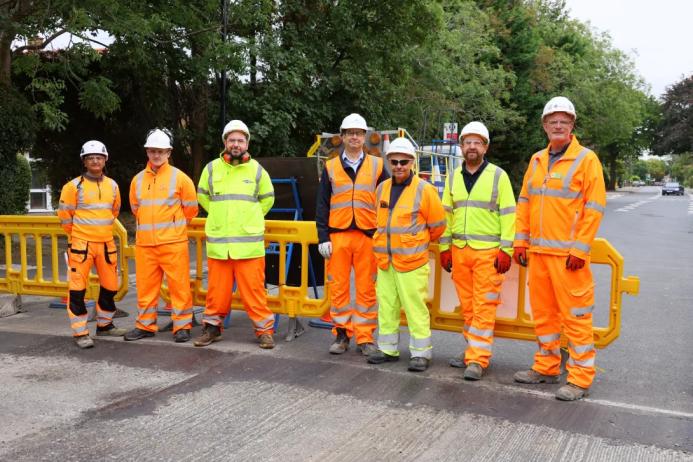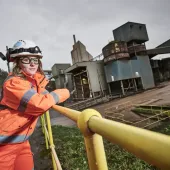Holcim UK support pioneering low-carbon road project
Company supplies sustainable asphalt solutions for innovative West Midlands road infrastructure trial
HOLCIM UK have supported a pioneering project in the West Midlands which aims to accelerate the decarbonization of road infrastructure and the roll-out of low-carbon road resurfacing materials with their latest innovative asphalt technologies.
Transport for West Midlands (TfWM) and Coventry City Council appointed Holcim to deliver low-carbon and innovative solutions to the project, which will see the company also collaborate with Balfour Beatty and Macdonald Surfacing.
Gathering crucial data for future projects across the UK, the trial involves resurfacing two main roads in Coventry and will see emerging technologies compared with conventional materials.
Led by TfWM, the trials form part of the Centre of Excellence for Decarbonizing Roads (CEDR), which is one of seven projects in ADEPT Live Labs 2: Decarbonizing Local Roads in the UK. Live Labs 2 is a three‑year, £30 million, UK‑wide programme funded by the Department for Transport that runs until March 2026, followed by a five‑year monitoring and evaluation period.
Bringing the latest innovation and expertise from their Asphalt division, Holcim’s national technical manager, Neil Leake, and regional technical manager, Jason Broughton, worked closely with the contractors to understand the project requirements and recommend suitable sustainable solutions.
Following a process of evaluation at the company’s Moordale R&D centre, the Holcim experts proposed a number of different options for the binder course of Broad Lane and surface course of Willenhall Lane. Born out of other strategic industry partnerships between Holcim and organizations such as Itechemica, Gautam ZEN UK, Low Carbon Materials, Shell, and Nynas, the technologies involved in the project include:
SuperLow-Carbon asphalt made using biogenic bitumen that locks in carbon to the road on both the SuperCurve surface course and AC20 HDM binder course, saving around 20% carbon compared with traditional warm-mix asphalt
Graphene-enhanced asphalt featuring the graphene-modified binder Gipave within the SuperCurve and AC20 HDM mixes to extend durability and reduce carbon production
Lignin-enhanced next-generation asphalt made using a lignin-based pellet called XyloBIND to reduce embodied carbon and improve resistance to ageing, oxidation, heat, and UV exposure
Foamix ECO, produced by OCL (Holcim’s endorsed brand for circular solutions), is a carbon-neutral asphalt featuring the latest carbon-negative materials such as ACLA, lignin, and biogenic bitumen.
Neil Leake said: ‘This collaboration with key industry stakeholders and local authorities is a great example of how prioritizing longevity, sustainability, and innovation can lead to positive outcomes for communities. By working closely with our partners, we have been able to not only deliver a durable and low-carbon road surface for road users in the West Midlands, but to test and refine innovative technologies in a real-world setting.
‘This insight will prove crucial to our efforts to improve roads nationally. We are committed to providing value to those working on improving road infrastructure across the UK through our expertise and sustainable solutions to make this a reality across the UK.’

Mark Corbin, director of network resilience at TfWM, said: ‘These trials reflect our shared commitment to tackling the climate emergency and developing greener, more resilient roads for our communities. By testing these new materials here in the West Midlands, we’re laying the foundations for a more sustainable transport future – locally and nationally.’
The project data gathered around performance, carbon savings, and cost is set to support local highway authorities across the UK in their efforts to make informed, evidence-based decisions on sustainable road surfacing solutions. Holcim’s innovative solutions will also be showcased across the strategic road network in the coming months, as part of National Highways’ demonstration schemes.
Participating in cutting-edge trials and providing value to the industry through collaborative partnerships forms a central part of Holcim’s mission to make sustainable construction a reality.
Kevin Murgatroyd, managing director of Holcim's Contracting division, said: ‘To make a success of delivering durable, sustainable, and safe roads across the UK, we as an industry have to work closely with local authorities and government to implement the right solutions correctly first time.
‘Backed by global expertise and innovation, we have the knowledge of the challenges facing the UK and the solutions and expertise to bring value to our partners in the highways space and to make these collective ambitions a reality.
‘With plenty of funding available to improve our roads and more scrutiny than ever from road users to get it right, it has never been more important for the sector as a whole to think about long-term solutions and work together to implement them now.’










